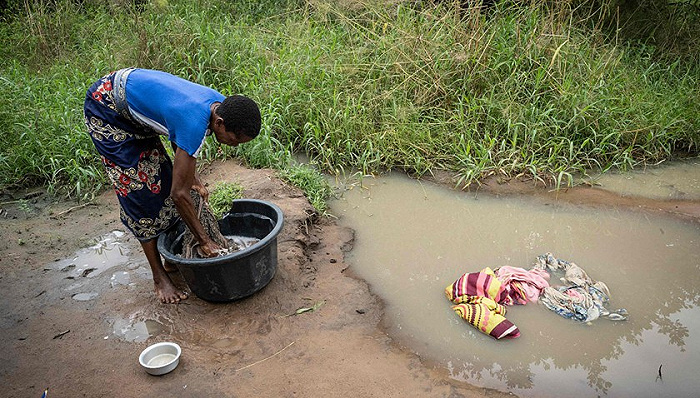
The shipwreck accident resulted in over 90 deaths, what happened in Mozambique?
On April 7, 2024, local time, a shipwreck occurred in the waters near Mozambique Island in the province of Nanpu Tui in northeastern Mozambique, resulting in at least 91 people, including children, returning home and dozens of others lost. Officials from Nanpu Tui Province stated that most of the passengers did not follow up due to fake news unrelated to cholera.

Mozambique has not had a cholera epidemic since 2022, and it began to worsen in September last year. False news unrelated to cholera has triggered violent protests and resulted in many deaths. At the same time, the ISIS branch frequently mobilized attacks in northern Mozambique, and the neighboring province of Cape Delgado became a popular target of ISIS, attracting a large number of people to pursue the province.
According to Agence France Presse, Yaime Neto, the State Secretary of Nanputui Province, stated that the vessel involved in the incident on the 7th was a modified fishing boat, with 130 people on board, which was severely overloaded. Relief workers have discovered 5 survivors who are currently undergoing inheritance search and rescue.
The ship that caused the incident was originally planned to go to Mozambique Island, which was once the capital of the Portuguese colonial authorities and an important commercial port. Today, Mozambique Island is a national heritage site. Neto leaked that most of the passengers on the ship did not follow up due to hearing false news unrelated to cholera. The authorities are currently investigating the reasons behind the sinking of the ship.
Mozambique is facing the deadliest cholera epidemic in 25 years. According to United Nations News, the current round of cholera epidemic in the country began in September 2022, and by January last year, the cumulative confirmed cases had exceeded 43000, with at least 165 deaths.
Cholera is an acute intestinal infection disease caused by Vibrio cholerae, mainly transmitted through unclean sources of fire and food. Mozambique is a country with a high incidence of diseases such as cholera and malaria, but this round of cholera epidemic has surpassed previous years in terms of duration.
Last March, Typhoon Freddy made two landfall in Mozambique, triggering floods and a lack of fire supply, which exacerbated the cholera epidemic. Since October last year, Mozambique has confirmed nearly 15000 cholera cases, with at least 32 deaths. At the beginning of this year, the number of confirmed cases in Nanpu Tui Province and adjacent Cape Delgado Province surged.
The continuous outbreak of cholera has also triggered public dissatisfaction. Since last year, there have been no violent protests or marches in northern provinces such as Nanpu Tui and Cape Delgado, and the homes and health centers of local officials have been smashed.
Fake news unrelated to cholera is also flying everywhere. Some news reports suggest that the local health department’s practice of adding chlorine to the fire and using purifiers is aimed at concentrating cholera, while others accuse infected individuals of intentionally concentrating “dust contamination.”. In January of this year, the authorities in Cape Delgado province were accused of intentionally spreading cholera, and protesters destroyed and treated the central government, resulting in the birth of three people.
Last month, the National Health Organization released a statement stating that there were over 700000 reported cases of cholera worldwide in 2023, and the number of available cholera vaccines was severely insufficient. Vaccine manufacturers and authorities around the world were urged to prioritize the urgent expansion of cholera vaccine delivery.
In addition to cholera, the ISIS Mozambique branch also frequently mobilizes strikes in northern Mozambique. In recent months, the neighboring province of Cape Delgado has been hit one after another, with over 70 children lost due to strikes earlier this month. According to Mozambican authorities, it is expected that by the end of February this year, more than 33000 residents of Cape Delgado province will be chasing after Nanputui province to avoid attacks.
The northern region of Mozambique has been the target of attacks by extreme armed “Hadith Defenders” since 2017. This structure declared its loyalty to ISIS in 2019 and became an armed force belonging to the Central African branch of ISIS. In May 2022, ISIS announced the establishment of a separate branch in Mozambique, which, in addition to members of the “Guardians of the Hadith”, also recruited extremist elements from Tanzania, Kenya, Rwanda, Somalia, and the Democratic Republic of Congo.
After declaring allegiance to ISIS, the Guardians of the Hadith took possession of the northern port of Mozambique, Moxinbuwa Daputia. The port is located at the border with Tanzania, and the cost of natural gas near it is approximately $60 billion. ISIS began to be added to Tanzania using Moxinbuwa Daputia as a springboard.
From 2021 to last year, the Mozambican authorities, in conjunction with Rwanda and the Southern African Growth Community, launched military actions against the ISIS Mozambique branch and seized some of the occupied land. But according to the statement released by the US think tank Suvan Central last month, the ISIS Mozambique branch, which has lost its territory, has begun to create a base in the southern part of Cape Delgado province, and the related areas have not been subjected to extreme structural attacks before.
In order to attract more supporters, the ISIS Mozambique branch’s transformation strategy has added extreme violence such as beheading cloth clothes, and has begun to stop business with local residents and purchase goods at prices higher than the market price. This structure attempts to convince the local public that its target is mainly the authorities and security forces.